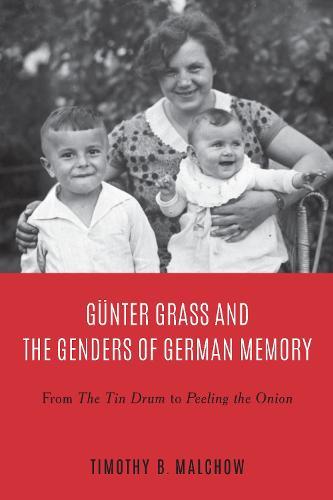Overview
The first book to examine the connection between gender and memory in Grass's oeuvre, which is especially timely in light of current concerns about male privilege. Gunter Grass (1927-2015) was a fixture at the heart of German cultural life, a self-styled spokesman of the Kulturnation (cultural nation) who imagined it linking him to canonical male literary figures and their authority. He was also the object of valid feminist criticism: a rigid conception of gender permeates his works, belying his professed skepticism toward ideologies. A heterosexual male, Grass lent his representative persona a natural veneer by appropriating his era's gendered discursive constructs, including Heimat, the Bildungsroman, and narratives about German wartime victims and perpetrators. Such appropriation elevated his remembering artist's masculinity above that of the status quo's defenders and exploiters of memory. This book is the first to evaluate the connection between gender and memory in Grass's oeuvre and its legacy in light of current concerns about male privilege. It highlights his breakthrough novel The Tin Drum (1959) and his memoir Peeling the Onion (2006). The former establishes the gendered persona that Grass would develop in subsequent decades to relate contemporary issues to Nazi-era memories. The latter reclaims the novel's autobiographical material but fails to account for his decades-long silence about having served in the Nazi Waffen-SS. Instead, it foregrounds his mourning for his mother, allowing for a more personal reading of his oeuvre and its gendered imagery.
Full Product Details
Author: Professor Timothy B. Malchow ,
Professor Julian Preece (Series Editor)
Publisher: Boydell & Brewer Ltd
Imprint: Camden House Inc
Dimensions:
Width: 15.20cm
, Height: 2.00cm
, Length: 22.90cm
Weight: 0.474kg
ISBN: 9781640140851
ISBN 10: 1640140859
Pages: 258
Publication Date: 15 March 2021
Audience:
Professional and scholarly
,
Professional & Vocational
Format: Hardback
Publisher's Status: Active
Availability: In Print

This item will be ordered in for you from one of our suppliers. Upon receipt, we will promptly dispatch it out to you. For in store availability, please contact us.
Reviews
Malchow's book is original, even ground-breaking, in showing how Grass draws on two fundamentally German modes of discourse, the Bildungsroman and the Heimat motif (often enacted in another prose genre, the Heimatroman) to shape his narratives and guide his exploration of German memory, particularly as it relates to the question of guilt and innocence, victimhood and perpetration, with respect to the period of National Socialist rule. . . . [The book] constitutes a noteworthy contribution to Grass scholarship . . . . Excellent . . . . -- John Pizer * GERMAN STUDIES REVIEW * Including admirably researched considerations of literary genres, education, homeland (Heimat), memory, trauma, and sexuality, this is a multifaceted and satisfying portrait of the literary artist as a man. -- J. M. Jeep * CHOICE * Throughout his book, Malchow makes a strong case for the connection between gender-coded imagery and the process of memory and memory creation in the two works. . . . By establishing the link between gender and memory, Malchow opens an additional avenue for Grass scholars to explore in assessing the author's work. -- Adrian Chubb * GERMAN QUARTERLY *
Author Information
TIMOTHY B. MALCHOW is Professor of German at Valparaiso University.




